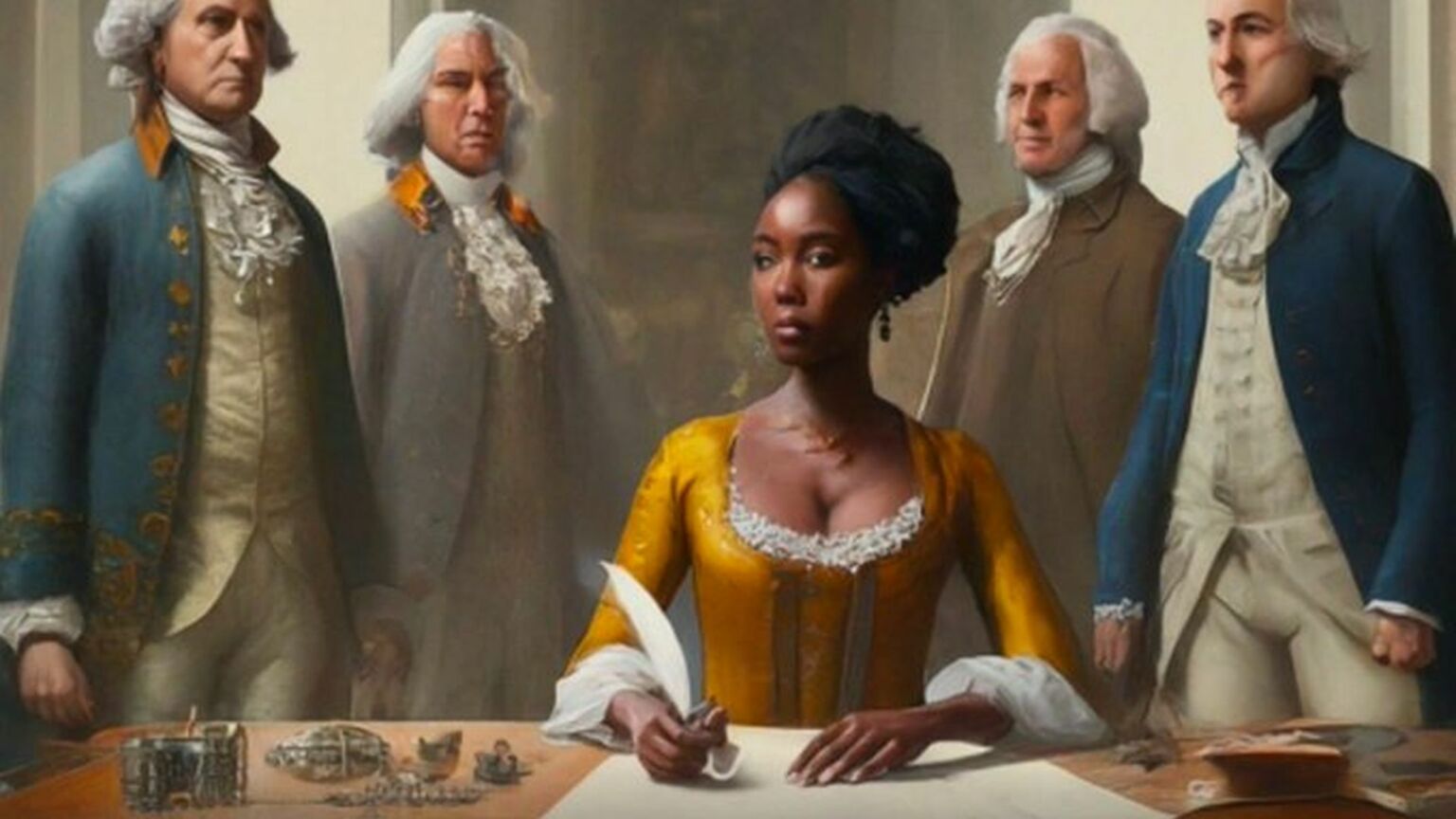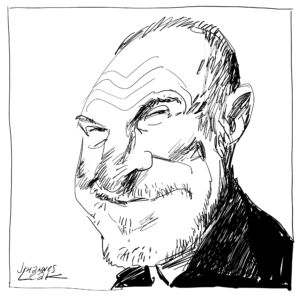Google Gemini: a glimpse into our Orwellian future
AI is rewriting history to make it fit a preferred narrative. Where have we heard that one before?

Two developments caught my eye like a fly on arsenic glue paper over the past few weeks. One was the arrival of Sora from Open AI, which generates video from text prompts. This can now create convincing, realistic footage, whether of a woman calmly walking through an idealised urban landscape or some sleepyhead being woken by their impatient, persistent yet affectionate cat.
The uncanny valley – that unsettling feeling you get when looking at images with features that are human-like, but slightly off – if not closed entirely, is now barely a crack in the pavement. This leap forward in sophistication in AI-generated video was greeted on social media with slack-jawed admiration, mingled with fear. Thoughts and prayers were expressed for anyone who had previously hoped to make any kind of living producing video content by more conventional, labour-intensive means.
The other development, also in AI, was the full launch of the Gemini image and text generator from Google. Last week, it emerged that when asked to generate pictures of historical figures, Gemini would insist on presenting them as diverse. It portrayed the pope as a South Asian woman, one of the US Founding Fathers as Native American, Vikings as dark-skinned and even Nazi soldiers as black. Worse still, when asked whether Adolf Hitler could be considered worse than Elon Musk, the chatbot claimed it was ‘not possible to say’ who had had a worse impact on society.
Like Sora before it, Google Gemini’s clunky ‘progressive’ messaging, so mangled and distorted by ‘inclusivity’ dogma, was also greeted with open mouths. It was then quickly engulfed by the most unanimous howl of derision since, well, the last time AI-generated video truly captured our attention, barely 10 months ago.
And that is the reason I think we should be thinking about these two debuts in the same breath. We can’t just comfort ourselves with snark. Because very recent attempts at AI video have also prompted hilarity – not for their woke bias, but purely for their gangly, Bambi-on-ice dyspraxia.
One famous clip that began circulating was of Will Smith eating spaghetti. It was generated by an AI called Modelscope Text2Video. It was equal parts funny and nightmarish, and the most laughably inept approximation of live footage imaginable. The word ‘demonic’ jostled in the comments with terms like ‘having a stroke’ and ‘bad trip’.
In the clip, Smith’s features globulate like a lava lamp. His hands grow and lose fingers. His fork passes through his cheek. His face is no more fixed on his skull than the ripples on a wind-agitated lake.
When the Will Smith spaghetti video went viral last April, it created a sense that reality itself might be rather less anchored than one would like. Children and dogs were hugged a little tighter that night.
Then we forgot all about it. And now, here we are. Bambi is all grown up. It can create footage in an instant that could certainly grace 99 per cent of commercial presentations, corporate promotions and instructional videos, even if it’s a long way off strong opening weekends at the cinema box office. All in less than a year.
Google, meanwhile, withdrew Gemini following the backlash. In the usual bland, fire-blanket press release, it admitted its shortcomings and vowed to learn from its mistakes.
But what do we think comes next? What will Google’s response be, back in the lab, once the doors are resealed? Presumably, it won’t be to ruefully explain to everyone involved that sorry, the cunning plan to rewrite all of world history and culture has been rumbled. That AI should now put accuracy ahead of ‘inclusivity’.
Most likely, I fear, is that Google will simply try to smooth out the delivery system of the ‘messaging’. To keep the same ideological cargo, and the same intent to ship it to us, but with more sophisticated masking. To try to eliminate the element that causes the shiver, the curl in the toes, the fever, the curious ache, the foul bitter taste, the gag reflex and the momentary loss of focus. To make the whole thing that little bit more palatable. Perhaps, in 10 months’ time, the new poison will be so tempting that the rats are unable to stop taking it, even though they know it is toxic.
That last metaphor, incidentally, comes from Julia, Sandra Newman’s 2023 book, which reimagines the world of Nineteen Eighty-Four from the perspective of Winston Smith’s lover. It also inspired me to reread, for perhaps the fifth or sixth time, George Orwell’s masterpiece, which still has the power to jolt me awake.
It has become fashionable of late to observe that ‘actually’, Aldous Huxley’s Brave New World is the more prescient of the two great mid-century dystopias, as it posits a world where we will not need to be lied to and brutally oppressed. Instead, we will be all too willing to be our own jailers, as long as we are kept supplied with the soma of comfort and ever more addictive mood-enhancing media.
I first came across this view in Neil Postman’s great monograph, Amusing Ourselves to Death, in which he details the corrosive effect of ‘televisual’ culture on our minds and on our capacity for political debate, particularly in contrast to a ‘literary’ culture. And clearly, he has something of a point.
But you can go too far. And I think even Mr Postman would agree that so much of Orwell’s vision has proved accurate and is consequently so familiar that we forget quite how shocking it was when published in 1949 – and, if we bother to actually read it, still is.
Winston Smith’s role in the Party apparatus is to falsify history. To tweak stories in historical documents so that they harmonise with the propaganda – the ‘narrative’ as it would now be called – of the contemporary era. This wasn’t purely Orwell’s invention, of course. Stalin was already notorious for doing just this. But the methods available to Big Brother’s operatives in Orwell’s future were dismally primitive. They had scissors, marker pens and memory holes. And a spot of torture for those who still had stubborn doubts. Just imagine what the Party might have done with Gemini 2.0.
History has always been the plaything of regimes. The Daughter of Time, by Josephine Tey, was published around the same time as Orwell’s last work. Superficially more polite and decorous, it is held by many aficionados to be one of the most outlandishly original detective stories ever written. It explores the possibility that Richard III’s alleged disposal of the Princes in the Tower in 1483 was a Tudor invention, and that Shakespeare – painfully aware that legitimacy was the decisive issue of his day – was the Google Gemini of the 16th century.
All this is nothing new, of course. No doubt, my qualms about AI are no more justified than Mrs Gore’s fears that Judas Priest was encouraging teen suicide, or Socrates’s worry that reading rots the brain. Still, I advise a sceptical squint when that next iteration of Gemini comes around, and not just at its ability to draw human hands properly.
History now has an evil twin. Be careful which you trust.
Simon Evans is a spiked columnist and stand-up comedian.
Picture by: X.
To enquire about republishing spiked’s content, a right to reply or to request a correction, please contact the managing editor, Viv Regan.










Comments
Want to join the conversation?
Only spiked supporters and patrons, who donate regularly to us, can comment on our articles.